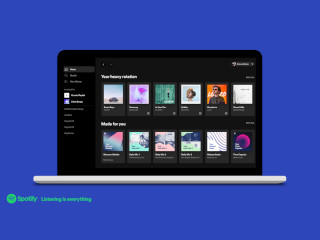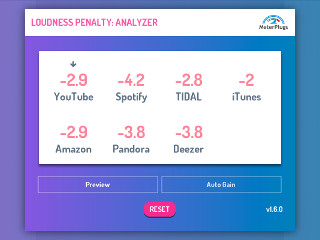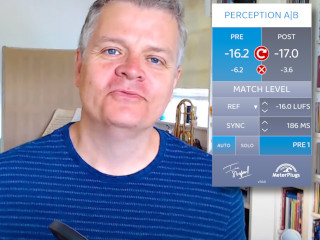Do you need to care about loudness while mixing, or is best to let the mastering engineer find the right levels? Can a mix be too loud, or not loud enough? What are some good starting points? Let’s look at a couple approaches - what I like to call “old school” and “new school.”
Old School
As a mixer using the old school approach, your aim is to preserve the dynamics of the mix. You aren’t concerned with the overall loudness of the mix, which is left to the mastering engineer.
You balance the mix primarily by adjusting the individual track faders. The mix is kept at a relatively low level to avoid the need for much compression and limiting. While some compression and limiting may be applied to individual tracks, the stereo bus is kept “clean.”
When using this “less is more” approach, you may need to increase your monitor gain if the mix doesn’t sound loud enough.
Beware of loudness deception when comparing your dynamic mix to more heavily compressed reference material.
This approach works great for most material, but if you are trying to achieve a more compressed sound, you may need a different approach…
New School
To achieve “aggressive” loudness levels, you’ll likely need to incorporate compression throughout the mixing process, both on individual tracks and on the stereo bus - a “layered” approach. You can’t tack it on at the end, in the mastering stage. Instead, you slap a compressor on the stereo bus before you even begin, and mix through it.
If you’re going to go this route, you need to consider that streaming platforms (e.g., Apple Music, Spotify, YouTube, Tidal, etc.) will turn down your hyper-compressed song, possibly making it sound dull and lifeless compared to other songs. Given that streaming platforms are the fastest growing means for music consumption, this shouldn’t be ignored.
Both Schools
Whichever approach you choose, avoid loudness for the sake of it. If it makes your music sound better, use it. If it just makes it louder, it’ll probably do more harm than good.
Leave room for the mastering engineer to do their work, by erring on the side of not being loud enough. It’s easier to add a little more compression than to correct over-compression.
Make sure that your mix “translates” by listening to it at a variety of loudness levels, on a variety of playback systems: your studio, car, phone, etc.
Lastly, don’t slap a compressor / limiter on at the end, like a band-aid. Either leave it to the mastering engineer, or incorporate it throughout your mix from the beginning.
As a mixing engineer, what does your approach look like? Old-school, new-school or some combination of the two? Leave your comments below:






